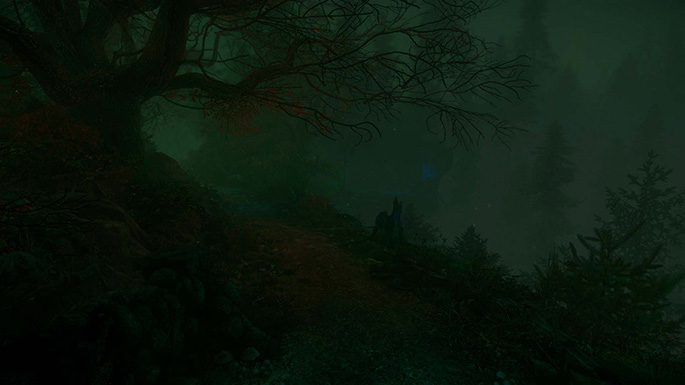
Milky Way
We will not spoil the plot or technologies described in the fascinating trilogy “Memory of the past of the Earth”, we are interested in the explanation of the Fermi paradox given by the Chinese writer, and only it.

This article was written with the support of EDISON Software, which turns its juniors into high-class programmers , and also conducts effective SEO campaigns .
Cosmic sociology
At the moment, we are reliably aware of the existence of only one intelligent civilization - human.
Nevertheless, if we consider that among the hundreds of billions of stars we are not alone in Our Galaxy, now nothing prevents us from developing cosmic sociology - a science that studies the universal principles of interaction between any cosmic civilizations that can arise in the vastness of space.
Based on the fact that Our Galaxy (and, more generally, the entire Universe) is the habitat of a large number of different alien races, then each alien race is considered to be a unit of the galactic community. Space sociology is designed to explain the interaction of these elementary units.
What cosmic sociology does not do
There is no reason to believe that the development of different civilizations will proceed in much the same way. Rather, on the contrary, it seems more convincing that the differences will be so enormous that we cannot even imagine how much.
The vector of technological progress will be influenced by a huge number of a variety of factors - the evolution process, the characteristics of the mother star, the characteristics of the planet, the local climate and specific geography, the features of the nearest space environment (for example, how often is the planet bombarded with comets and asteroids with catastrophic consequences?), Etc. P. Natural conditions can turn out to be both reminiscent of the "Garden of Eden", and as severe as possible.
Not to mention the fact that it is completely impossible to predict how the development of society itself will proceed on the planet, even if we are talking about humanoids living in natural conditions close to terrestrial. Will it be a totalitarian sect on a planetary scale or will it develop into a society as loyal to the personal freedoms of each individual as possible? Or maybe it will be a very motley conglomerate of ideologically different states, as we have now?
Therefore, cosmic sociology does not at all try to predict what alien civilizations will look like and what moral values they are guided by. A different race may be anything.
Space sociology believes that in spite of any differences between races, there are some general principles of interaction between them.
Axiomatics
It may seem that this theoretical system will be exclusively speculative and therefore absolutely useless and meaningless. Perhaps cosmic sociology is doomed to pseudoscience from the very beginning, and perhaps it will become the lot of marginals who idly talk about aliens?
Due to the lack of empirical data (and there is no data at all, we have never before seen how civilizations communicate among themselves from different places of the Galaxy), Liu Cixin in his books suggests applying the axiomatic method to new science. Just as the whole elementary geometry is derived from several Euclidean axioms, so in space sociology, based on the minimum number of postulates, the most general principles of the interaction of space civilizations can be derived.
Only two axioms are proposed.
Axiom 1. Survival is the basic need of civilization.
Axiom 2. Civilization is constantly growing and expanding, but the amount of matter in the Universe remains unchanged.It is unlikely that it will be possible to refute the truth of these axioms. They, obviously, characterize life in general at a basic level and, of course, fully relate to intelligent life.
It is also worth noting that, at a minimum, humanity complies with these fundamental principles.
It is permissible to assume that among millions of civilizations there are those who, for whatever reason, cease to follow the principles embodied in these axioms. Does the presence of such alien societies influence the conclusions of space sociology as a whole? Not. If the instinct of self-preservation is disabled for civilization, then obviously this will quickly (by cosmic standards) lead to its death. If civilization fundamentally refuses to expand its territory, then at some point, with the exhaustion of available resources, it will stop its development and, in the future, civilization will either die as a result of large-scale cataclysms (from the explosion of a nearby supernova, from the fall of a large meteorite, from eruptions of a supervolcano, from the global ice age, etc.) or will be captured by another civilization, more aggressive, more advanced, preferring expansion. In general, even if such “wrong” civilizations exist, then for them it will not be for long. Short-term anomalies that do not affect the overall picture.
Difference from ordinary sociology
The temptation is great to use knowledge of human society in cosmic sociology. Extensive knowledge has been accumulated about the interaction of different cultures, it seems especially appropriate to draw parallels with the clashes of two civilizations, which are orders of magnitude different in technological development (the capture of America by the Spanish conquistadors, the colonization of Africa by European powers, etc.).
If historical analogies are used, then this must be done with the utmost care. The most important difference lies in the distances. On Earth, even millennia ago, the movement of expeditions and armies takes place in a short time (a few years maximum). On a cosmic scale, everything is different, unless of course you fantasize about interstellar gates and accept that even the most advanced super civilization ships can fly at a speed not exceeding the speed of light. Why this is extremely important will be explained below.
Chains of suspicion

What happens if one civilization finds out about the existence of another civilization? Of course, this is not about the hype that will arise as a result of this news. In the framework of cosmic sociology, we are interested in the nature of the interaction between the two civilizations.
Before we continue, we introduce two concepts: a friendly and hostile civilization. A friendly civilization is one that does not attempt to attack first, in order to destroy another civilization.
A hostile civilization in this respect is the opposite of a friendly one - it attacks the first civilization first, in order to destroy it.
We do not delve into the reasons why one civilization may be hostile to another civilization. For space sociology, it doesn’t matter. The important thing is that such a probability of hostility cannot be ruled out. Infantile reasoning in the spirit of “powerful alien races is always wise and therefore never the first to attack ” is obviously naive and unfounded.
So, civilization 1 saw through its telescopes the indisputable signs of the existence of civilization 2. The distance between the worlds, well, say, 100 light-years.
What do civilizations 1? She does not know whether civilization 2 will be hostile or friendly to her. Sending greetings towards civilization 2 may turn out to be a fatal miscalculation - if civilization 2 is hostile and more technologically advanced, then, most likely, a fleet of warships will fly in response to a harmless message.
It is important to understand that if civilization 1 saw civilization 2, then it is only a matter of time before civilization 2 sees civilization 1.
Civilization 1 is unknown, does civilization 2 know about the existence of civilization 1? But what if civilization 2 had long sent a fleet in the direction of civilization 1? But what if civilization 2 does not yet know about civilization 1, but what will happen when it finds out? Obviously, civilization 2 will begin to be tormented by doubts about the friendliness / hostility of civilization 1. What will civilization 2 do then?
Under the pressure of this galactic paranoia, civilization 1 from a sense of self-preservation (axiom 1) will have to do one of two ways.
If civilization 1 is not too highly developed, then it needs to lie low and not inform civilization 2 about its existence in any way.
If civilization 1 is technologically powerful, then it makes sense to play a lead - first hit civilization 2.
Chains of suspicion show why the principles of ordinary sociology on a galactic scale do not work. If there are hundreds of light years between them, then civilization 1 will not be able to quickly and thoroughly find out what are the possibilities and intentions of civilization using spy drones.
Suppose civilization 1, excited by the news of the existence of civilization 2, created much more powerful telescopes and carefully studied the habitat of civilization 2. And by some signs, it came to the conclusion that civilization 2 is clearly less developed than civilization 1. Does this mean that civilization 1 Now can calmly relax and breathe a sigh of relief?
Not.
In civilization 2, it can happen in the coming decades (or has already happened while the light was traveling 100 years from star to star) ...
Technological explosion

In our example, we see that the development of technology can occur exponentially. Even 20 thousand years ago, people lived in caves, 10 thousand years ago went in for agriculture, 200 years ago mastered steam technologies, saddled nuclear energy less than 100 years ago, today a quantum computer is almost ready, tomorrow we will start building a fusion reactor, and in a few decades looking forward to the onset of technological singularity ...
Even if civilization 2 is still lagging behind in development, it may well make a revolutionary breakthrough and overtake civilization 1. And if civilization 2 turns out to be unfriendly to civilization 1, would civilization 1 bitterly regret not destroying the enemy while it was weak?
As long as civilization 2 is backward, it is obviously friendly to the rest. But with a technological explosion, axiom 2 will start to work at full capacity, and it is likely that civilization 2, which has begun to intensively expand its living space, will become hostile to its neighbors.
We come to the disappointing conclusion that it does not matter whether the friendly or hostile attitude of another civilization. Given the chain of suspicions and the prospects of a technological explosion among competitors, if there is an opportunity to destroy another civilization, then it is necessary to destroy it. If this is not possible, then it is worth hiding and working on approaching your own technological explosion.
Dark forest

“The universe is indeed a gloomy place.” - Luo Ji waved his hand, feeling the darkness, like velvet. - The universe is a dark forest. Each civilization is a hunter armed to the teeth, ghostly sliding between trees, imperceptibly taking branches to the side and trying to step silently. He even breathes through time. The hunter has something to fear: the forest is full of other invisible hunters, such as himself. If he meets life - another hunter, an angel or a devil, a newborn baby or an old ruin, fairy or demigod - he has only one way out: open fire and destroy. In this forest, other people are hell. Any life is a mortal threat to everyone else and will be destroyed at the earliest opportunity. This is what space civilization looks like. And this explains the Fermi paradox.
Liu Cixin, "Dark Forest"
Personal opinion
In general, in this article I tried to avoid the gag (it was not for me to judge whether I was able to) and tried to expound only those concepts that Liu Qixin proposed in my books (in any case, as I understand them). Regarding whether he himself agrees with the author or not, I will say this. Such a pessimistic picture seems to me quite plausible. At the moment, while there is no information about other civilizations, in the name of their safety, it is worth assuming the worst and, accordingly, not making mistakes that can be fatal. If it turns out over time that it is not so scary to live in galactic reality, then it is good, but if the worst is confirmed, then the initial caution will give a chance for survival.